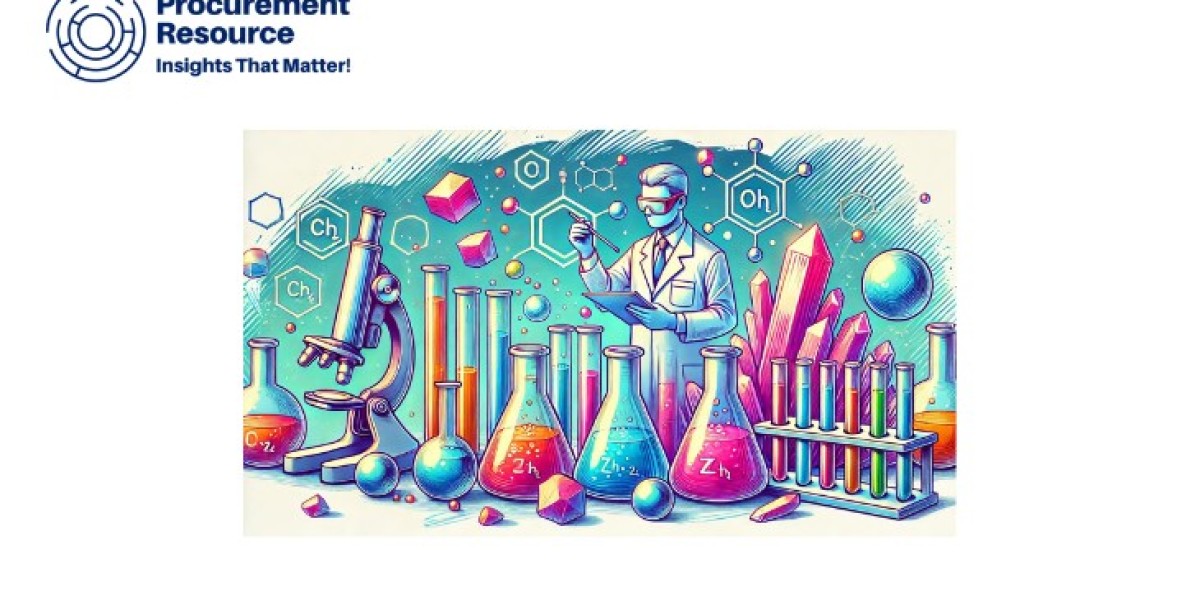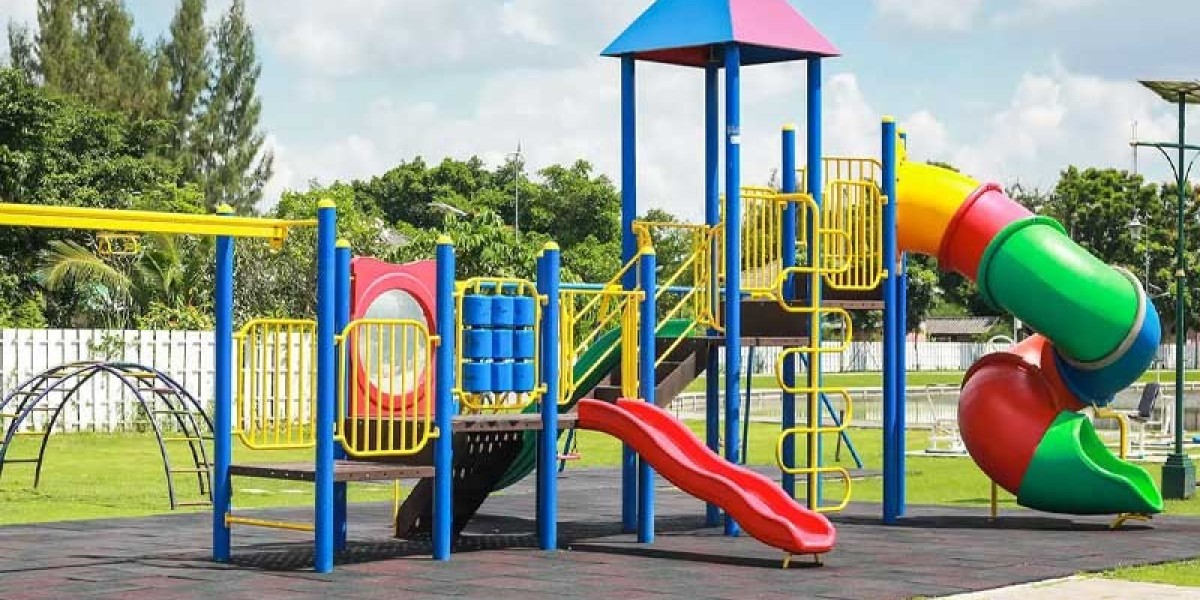Zinc chloride is a crucial compound widely used in various industries, from chemical and textile manufacturing to pharmaceuticals. Its versatile nature makes it indispensable in processes such as galvanization, chemical synthesis, and wood preservation. For entrepreneurs and companies seeking to set up a Zinc Chloride manufacturing plant, a detailed project report is essential to understand market trends, manufacturing costs, and feedstock requirements. This report aims to provide a comprehensive analysis of the zinc chloride manufacturing process, the costs involved, top manufacturers, market drivers, and other critical factors that influence this industry.
Zinc Chloride Manufacturing Process
The production of zinc chloride involves the reaction between zinc oxide and hydrochloric acid or the dissolution of zinc metal in hydrochloric acid. The general steps in the manufacturing process include:
Preparation of Raw Materials: The primary feedstocks for zinc chloride production are zinc oxide, zinc metal, and hydrochloric acid. Zinc oxide is primarily derived from zinc ores, while zinc metal can be sourced from zinc scraps or ores.
Reaction with Hydrochloric Acid: The most common method for producing zinc chloride is through the reaction of zinc oxide with hydrochloric acid. In this process, zinc oxide is dissolved in hydrochloric acid, forming zinc chloride and water.
Crystallization and Purification: The zinc chloride solution is then subjected to crystallization. The crystals are separated, purified, and dried to produce the final product.
Packaging and Distribution: The final product is typically packaged as a white, crystalline powder or in a liquid form for various industrial applications.
This process requires careful management of temperature, concentration, and reaction time to ensure high-quality zinc chloride production.
Request a Free Sample - https://www.procurementresource.com/reports/zinc-chloride-manufacturing-plant-project-report/request-sample
Zinc Chloride Manufacturing Plant Cost Model
Establishing a Zinc Chloride manufacturing plant requires careful financial planning. The cost model for setting up such a plant involves several key factors:
Capital Investment: This includes the cost of land, plant construction, machinery, and equipment. The capital investment will depend on the scale of operations, location, and technology used in the manufacturing process.
Operating Costs: These costs include raw materials, utilities (such as water, electricity, and gas), labor, maintenance, and overheads. Zinc chloride plants typically have a significant consumption of hydrochloric acid, zinc oxide, and energy, making them crucial components in the cost structure.
Environmental Compliance: Given the potentially hazardous nature of the chemicals involved, it’s important to consider the costs related to waste management, effluent treatment, and compliance with local environmental regulations.
Transportation and Distribution: The logistics of distributing the final product to customers are also a significant consideration. Costs related to warehousing, shipping, and transportation must be factored into the cost model.
A detailed Zinc Chloride Manufacturing Plant Project Report will provide an in-depth analysis of all these costs, allowing investors and businesses to make informed decisions.
Key Insights from the Zinc Chloride Industry
The zinc chloride market has been witnessing steady growth due to its wide range of applications. Key insights from the industry include:
Growing Demand from Industrial Applications: Zinc chloride is widely used in applications such as galvanization, textiles, chemical synthesis, and even as an electrolyte in batteries. With growing industrial activities worldwide, the demand for zinc chloride continues to rise.
Environmental Concerns Driving Sustainable Practices: With increasing concerns over environmental sustainability, manufacturers are seeking ways to reduce waste and emissions. Innovations in recycling and the use of eco-friendly feedstocks are expected to drive market growth.
Supply Chain Dynamics: The zinc chloride market is also affected by the fluctuations in the prices of raw materials, particularly zinc and hydrochloric acid. The availability of these feedstocks at competitive prices is critical for maintaining a stable supply chain.
Technological Advancements in Manufacturing: The development of more efficient and cost-effective manufacturing processes, such as advanced crystallization techniques and improved reaction vessels, is helping reduce production costs and enhance product quality.
Market Drivers for Zinc Chloride
Several factors are driving the growth of the zinc chloride market, including:
Industrialization: The growth of industries such as construction, automotive, and textiles is directly contributing to an increase in the demand for zinc chloride. Its use in galvanizing steel, for example, is essential for corrosion protection in various sectors.
Increased Use in Pharmaceutical and Chemical Applications: Zinc chloride is also gaining traction in the pharmaceutical and chemical industries. It is used in the synthesis of various chemicals and as a catalyst in some reactions.
Infrastructure Development: With the continuous expansion of infrastructure projects, especially in emerging economies, the demand for materials like galvanized steel has increased, thereby driving demand for zinc chloride.
Environmental Regulations: Stricter environmental regulations and sustainability trends are promoting the use of zinc chloride in environmentally friendly applications like water purification and renewable energy storage.
Top Manufacturers of Zinc Chloride
Several top manufacturers dominate the global zinc chloride market. These companies are focused on maintaining high production capacities, adhering to stringent environmental standards, and enhancing product quality. Some of the major players in the market include:
Zinc Nacional: Known for its leadership in the production of zinc-based products, Zinc Nacional is a significant player in the zinc chloride industry. The company offers high-quality zinc chloride for various applications, including water treatment and textiles.
Hindustan Zinc: A subsidiary of Vedanta Resources, Hindustan Zinc is one of the largest zinc producers in the world. It manufactures a range of zinc-based chemicals, including zinc chloride.
Shanxi Zhongtai Chemical: Located in China, Shanxi Zhongtai is one of the leading manufacturers of zinc chloride and other zinc-based chemicals. The company serves a global market and is known for its competitive pricing.
Merck Group: A global leader in life sciences and chemicals, Merck manufactures zinc chloride for various applications, including pharmaceuticals, electronics, and chemical processes.
These companies have established strong supply chains and are continuously investing in R&D to meet the growing demand for high-quality zinc chloride products.
Outline for Zinc Chloride Manufacturing Plant Setup
Setting up a Zinc Chloride manufacturing plant involves several key stages:
Feasibility Study: Conduct a comprehensive study to evaluate the potential market for zinc chloride in your region, including an analysis of competition, supply chain dynamics, and regulatory considerations.
Plant Design and Engineering: Plan the plant layout, including the choice of technology, machinery, and raw material sourcing.
Procurement of Equipment and Raw Materials: Source the required machinery, reactors, crystallizers, and feedstocks.
Construction and Installation: Build the plant, install the machinery, and ensure compliance with safety and environmental regulations.
Testing and Production: Conduct pilot tests, fine-tune the process, and begin full-scale production.
Marketing and Distribution: Develop a distribution network to ensure the product reaches the market effectively.
Request a Free Sample
If you are considering setting up a Zinc Chloride manufacturing plant or investing in this sector, you can gain valuable insights from a Zinc Chloride Manufacturing Plant Project Report. This report includes detailed market trends, cost analysis, top manufacturers, and other critical factors.
Request Your Free Sample Report - https://www.procurementresource.com/reports/zinc-chloride-manufacturing-plant-project-report/request-sample
Contact Us:
Company Name: Procurement Resource
Contact Person: Tom Hanks
Email: sales@procurementresource.com
Toll-Free Number: USA & Canada - Phone no: +1 307 363 1045 | UK - Phone no: +44 7537171117 | Asia-Pacific (APAC) - Phone no: +91 1203185500
Address: 30 North Gould Street, Sheridan, WY 82801, USA









